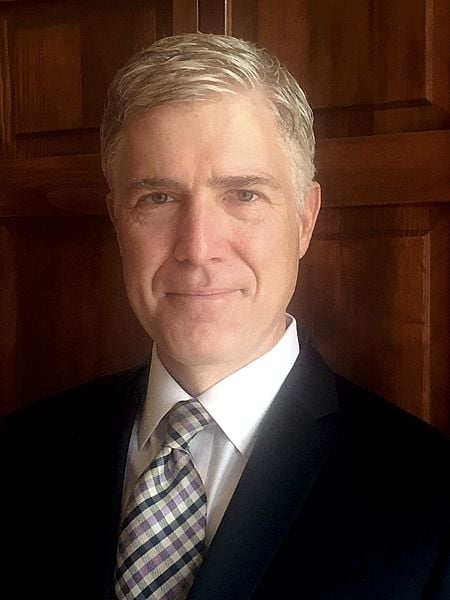
President Trump has nominated Judge Neil Gorsuch, who is currently on the 10th Circuit Court of Appeals, for the Supreme Court.
Judge Gorsuch, an Episcopalian, has written a book in opposition to assisted suicide entitled, The Future of Assisted Suicide and Euthanasia. In the book, he said “Human life is fundamentally and inherently valuable and the intentional taking of human life by private persons is always wrong.”
Note the caveat he put in that statement, “by private persons.” I interpret that to mean that he supports the death penalty.
I think it is important that he wrote this book in 2006, which means he was not writing it to promote himself vs a vs this nomination.
He is married to his college sweetheart and only wife, Marie Louise. Mrs Gorsuch is originally from Britain. Judge Gorsuch referred to his wife as “Louise” in both his book and during the announcement of his nomination. The couple has two daughters.
I am particularly glad that Judge Gorsuch is a solid family man who has two daughters. I’m hopeful that this will give him an understanding of issues that pertain to violence against women and women’s human rights, in particular sexual assault and rape.
Judge Gorsuch has been roundly endorsed by such heavyweights as Robert P George, who has this to say:
Gorsuch and I have worked together on academic projects, most notably when I was the editor of the Princeton University Press book series for which he wrote “The Future of Assisted Suicide and Euthanasia” — an impressive, deeply scholarly book that was praised by bioethicists (including the liberal Daniel Callahan and the conservative John Keown) as well as academic lawyers — in 2006. The book critically engages the work of scholars (including myself) across a range of disciplines and representing a spectrum of viewpoints. Gorsuch went the extra mile in ensuring that his treatment of the work of other writers — especially those with whom he disagrees — was sympathetic and impeccably accurate. His sheer fair-mindedness was the thing I found most striking about working with him.
…
In selecting Gorsuch, President Trump has without question fulfilled his pledge to appoint a justice in the mold of Antonin Scalia — a conservative intellectual leader. Even those of us who refused to get on the Trump train after his nomination have to acknowledge that. But one respect in which Gorsuch is unlike Scalia is that he is not fiery or pugnacious. Rather, his demeanor is scholarly — one might even say bookish. He is not a fierce debater. I recall being with him at an academic conference at which a graduate student contradicted and challenged a comment he had made. Far from bristling or even returning fire, he encouraged the student to develop her argument further, graciously acknowledging merit in the point she had made.
The one blot on his record that I have found is not his blot, but his mother’s. His mother, Anne Gorsuch, was the first woman appointed to head the EPA. She was appointed by President Ronald Reagan. During her tenure, she evidently ignored the agency’s statutory mandate by refusing to hear cases, and limiting regulations on toxic waste disposal.
She was later cited for Contempt of Congress for her refusal to submit documents. She resigned her position as head of the EPA.
This concerns me because of the heavy concentration of oil industry advocates in President Trump’s cabinet appointees. Oil independence is a matter of national security. But we must develop our oil resources with the common good as our goal, which means we must balance the demands of the oil industry with public needs and the public good. That will not happen if the industry has too much control of governance.
I haven’t written about this yet, and now is not the time. But I wanted to add that caveat to this round-up of praise for Judge Gorsuch’s nomination as a bit of a warning. When it comes to people, all our idols have clay feet of one sort or the other.
Having said that, I, for one, intend to get behind Judge Gorsuch’s nomination. Hopefully, the Senate will conduct reasonable and intelligent hearings on his fitness without the usual craziness.













